Cosmetic Rhinoplasty Cost in Tunisia from top hospitals starts from TND 15861 (USD 5100)approx
.Rhinoplasty, also known as nose surgery, is a surgical procedure used to change the shape of the nose, size or proportion of the nose. This procedure is done to improve the appearance, breathing or both.
| Country | Cost | Local_currency |
|---|---|---|
| Czechia | USD 2640 | Czechia 59902 |
| Greece | USD 3120 | Greece 2870 |
| Hungary | USD 3000 | Hungary 1045680 |
| India | USD 1930 | India 160480 |
| Israel | USD 3000 | Israel 11400 |
| Lithuania | USD 2080 | Lithuania 1914 |
| Malaysia | USD 3500 | Malaysia 16485 |
| Morocco | USD 3500 | Morocco 35140 |
| Poland | USD 3180 | Poland 12847 |
| South Korea | USD 4850 | South Korea 6512046 |
| Spain | USD 6080 | Spain 5594 |
| Thailand | USD 8140 | Thailand 290191 |
| Tunisia | USD 5100 | Tunisia 15861 |
| Turkey | USD 1570 | Turkey 47320 |
| United Arab Emirates | USD 5040 | United Arab Emirates 18497 |
| United Kingdom | USD 6140 | United Kingdom 4851 |
Treatment cost
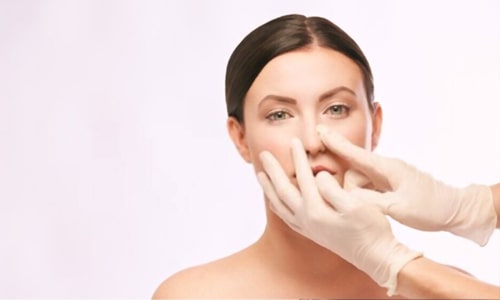
MediGence is offering immense facilities for your medical journey such as:
We provide packages at economical prices with a number of additional benefits which make it a better opportunity than spending actual hospital costs with singular benefits. Rhinoplasty (RIE-no-plas-tee), or what is known as nose surgery is done to bring a change in nose shape. It is done if the function or appearance of the nose is to be changed or both are to be modified. The modifications can be in cartilage, bone, skin or the three of them combined., There are many attractive benefits that are present in the packages provided under the aegis of Kardiolita Hospital, Vilnius, Lithuania.
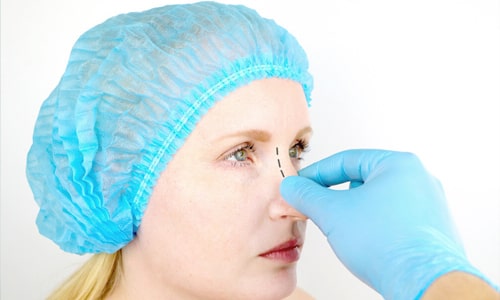
We provide numerous services for your medical journey, including:
We offer packages at reasonable pricing that include a variety of additional advantages, making it a better deal than paying for individual perks at the hospital. Rhinoplasty (RIE-no-plas-tee), or what is known as nose surgery is done to bring a change in nose shape. It is done if the function or appearance of the nose is to be changed or both are to be modified. The modifications can be in cartilage, bone, skin or the three of them combined., There are many attractive benefits that are present in the packages provided under the aegis of Fortis Hospital, Shalimar Bagh, India.
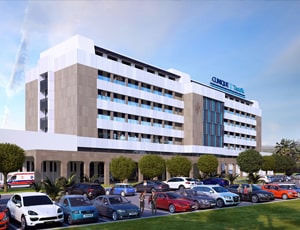
Taoufik Clinique located in Tunis, Tunisia is accredited by JCI. Also listed below are some of the most prominent infrastructural details:
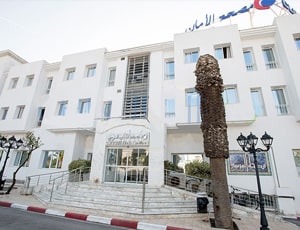
Apart from in-detail treatment procedures available, Chirurgie Pro located in La Marsa, Tunisia has a wide variety of facilities available for International Patients. Some of the facilities which are provided by them are Accommodation, Airport Transfer, Choice of Meals, Interpreter, SIM, TV inside room. Also listed below are some of the most prominent infrastructural details:
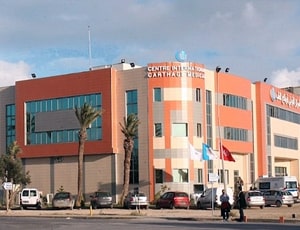
Apart from in-detail treatment procedures available, Carthage International Medical Center located in Monastir, Tunisia has a wide variety of facilities available for International Patients. Some of the facilities which are provided by them are Accommodation, Airport Transfer, Choice of Meals, Interpreter, SIM, TV inside room. Also listed below are some of the most prominent infrastructural details:

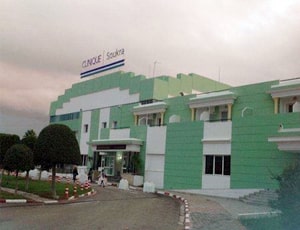
Apart from in-detail treatment procedures available, Clinic Soukra located in Ariana, Tunisia has a wide variety of facilities available for International Patients. Some of the facilities which are provided by them are Accommodation, Airport Transfer, Choice of Meals, Interpreter, SIM, TV inside room. Also listed below are some of the most prominent infrastructural details:
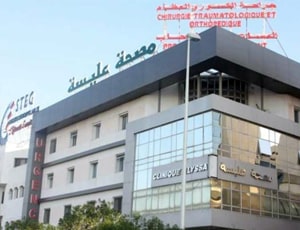
Apart from in-detail treatment procedures available, Clinic Alyssa located in Tunis, Tunisia has a wide variety of facilities available for International Patients. Some of the facilities which are provided by them are Accommodation, Airport Transfer, Interpreter, SIM, TV inside room. Also listed below are some of the most prominent infrastructural details:
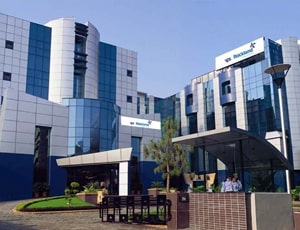
Types of Cosmetic Rhinoplasty in Medeor Hospital and its associated cost
| Treatment Option | Approximate Cost Range (USD) | Approximate Cost Range (INR) |
|---|---|---|
| Open Rhinoplasty | 2038 - 3548 | 166703 - 292363 |
| Closed Rhinoplasty | 1959 - 3359 | 160527 - 273869 |
DOCTORS IN 13 SPECIALITIES
FACILITIES & AMENITIES
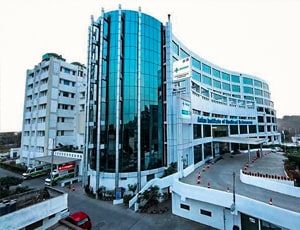
Types of Cosmetic Rhinoplasty in Asian Institute of Medical Sciences and its associated cost
| Treatment Option | Approximate Cost Range (USD) | Approximate Cost Range (INR) |
|---|---|---|
| Open Rhinoplasty | 2036 - 3547 | 166962 - 292535 |
| Closed Rhinoplasty | 1961 - 3344 | 160073 - 274054 |
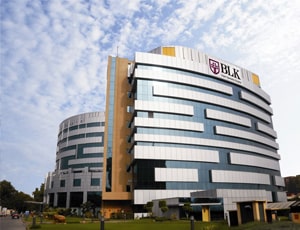
The cost for Cosmetic Rhinoplasty ranges from USD 3780 - 4510 in BLK-Max Super Speciality Hospital
BLK-Max Super Speciality Hospital located in New Delhi, India is accredited by NABL. Also listed below are some of the most prominent infrastructural details:
DOCTORS IN 15 SPECIALITIES
FACILITIES & AMENITIES
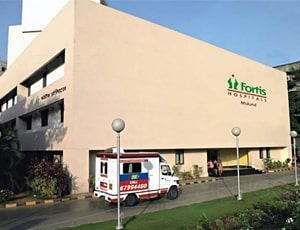
Types of Cosmetic Rhinoplasty in Fortis Hospital, Mulund and its associated cost
| Treatment Option | Approximate Cost Range (USD) | Approximate Cost Range (INR) |
|---|---|---|
| Open Rhinoplasty | 2293 - 3947 | 180847 - 325606 |
| Closed Rhinoplasty | 2219 - 3697 | 180082 - 305284 |
DOCTORS IN 13 SPECIALITIES
FACILITIES & AMENITIES
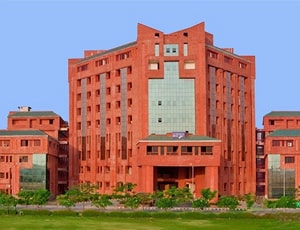
Types of Cosmetic Rhinoplasty in Sharda Hospital and its associated cost
| Treatment Option | Approximate Cost Range (USD) | Approximate Cost Range (INR) |
|---|---|---|
| Open Rhinoplasty | 1897 - 3225 | 154343 - 271825 |
| Closed Rhinoplasty | 1828 - 3074 | 148252 - 253858 |
DOCTORS IN 12 SPECIALITIES
FACILITIES & AMENITIES
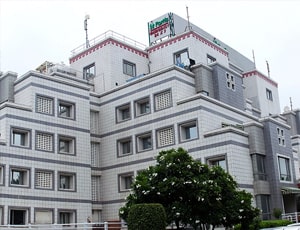
Types of Cosmetic Rhinoplasty in Fortis Flt. Lt. Rajan Dhall Hospital and its associated cost
| Treatment Option | Approximate Cost Range (USD) | Approximate Cost Range (INR) |
|---|---|---|
| Open Rhinoplasty | 2031 - 3536 | 167117 - 290752 |
| Closed Rhinoplasty | 1953 - 3342 | 160277 - 275336 |
DOCTORS IN 11 SPECIALITIES
FACILITIES & AMENITIES
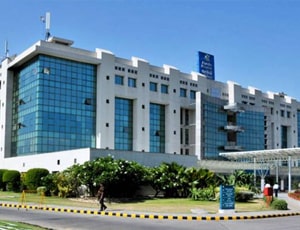
Types of Cosmetic Rhinoplasty in Apollo Hospital International Limited and its associated cost
| Treatment Option | Approximate Cost Range (USD) | Approximate Cost Range (INR) |
|---|---|---|
| Open Rhinoplasty | 2021 - 3539 | 167242 - 291522 |
| Closed Rhinoplasty | 1954 - 3361 | 159902 - 274622 |
DOCTORS IN 13 SPECIALITIES
FACILITIES & AMENITIES
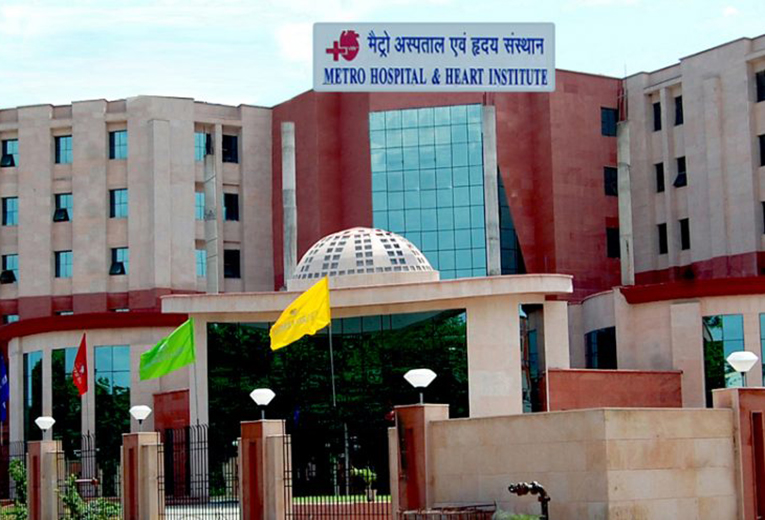
Types of Cosmetic Rhinoplasty in Metro Hospital and its associated cost
| Treatment Option | Approximate Cost Range (USD) | Approximate Cost Range (INR) |
|---|---|---|
| Open Rhinoplasty | 1859 - 3276 | 155329 - 266212 |
| Closed Rhinoplasty | 1796 - 3064 | 145800 - 252524 |
DOCTORS IN 12 SPECIALITIES
FACILITIES & AMENITIES
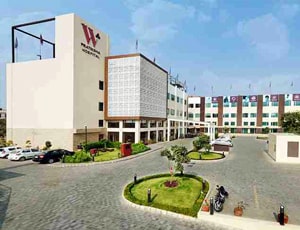
Types of Cosmetic Rhinoplasty in W Pratiksha Hospital and its associated cost
| Treatment Option | Approximate Cost Range (USD) | Approximate Cost Range (INR) |
|---|---|---|
| Open Rhinoplasty | 1881 - 3231 | 151507 - 264398 |
| Closed Rhinoplasty | 1811 - 3092 | 147192 - 253064 |
DOCTORS IN 12 SPECIALITIES
FACILITIES & AMENITIES
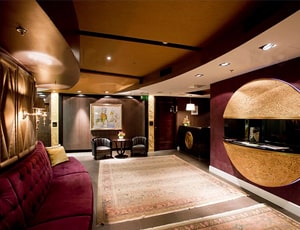
Dr. Rose Private Hospital located in Budapest, Hungary is accredited by JCI. Also listed below are some of the most prominent infrastructural details:
Nose plays a very important role in defining one’s personality. The entire contour of the face changes with a well-defined nose in place. Rhinoplasty is a cosmetic procedure performed on the nose to enhance its appearance. It is also known as rhinoplasty or nose reshaping. The shape and size of the nose can be changed drastically to improve the features of the face.
Rhinoplasty surgery is mainly performed for aesthetic reasons. An accident or too big or too small appearance of the nose can be given a proper shape with the help of rhinoplasty surgery. A nose can get mutilated or crooked due to some injury or accident which can be corrected through a surgery. Minor problems in breathing can also be attended.
People with abrupt or deformed shape of the nose may experience problems in breathing and subsequent problem in talking normally. Rhinoplasty surgery can help provide great relief to such people.
Nose plastic surgery is commonly performed on both men and women. In fact, it ranks third in the list of most commonly performed cosmetic surgeries. The shape of the nose can be altered through rhinoplasty by addition or removal of bones, cartilage, and tissues or by performing grafting.
The nose is composed of consequent interlinked parts comprising the skin, the pyramid of bony origin, followed by the cartilage, and finally the tip of the nose. There is a strip of skin named columella that separates the two nostrils.
The existing quality of nose plays a pivotal role in the final result of a rhinoplasty surgery. People who have inherited a thick skin may not like the transformation of the bone structure below the nose. On the other hand, people with think skin are unable to hide too many problems related to the symmetry and regularity of the nasal bone.
Ask your healthcare adviser for the best multiple options and choose the one that meets your expectations
Cosmetic Rhinoplasty cost in Tunisia starts from about USD$ 5100. In Tunisia, Cosmetic Rhinoplasty is conducted across many multispecialty hospitals.
Cosmetic Rhinoplasty cost in Tunisia varies from one hospital to the other. Some of the best hospitals for Cosmetic Rhinoplasty offer a comprehensive package that covers the end-to-end expenses related to investigations and treatment of the patient. The Cosmetic Rhinoplasty cost in Tunisia includes the cost of anesthesia, medicines, hospitalization and the surgeon's fee. Post-surgical complications, new findings and delayed recovery may have an impact on the total Cosmetic Rhinoplasty cost in Tunisia.
There are several best hospitals for Cosmetic Rhinoplasty in Tunisia. For quick reference, the following are some of the leading hospitals for Cosmetic Rhinoplasty in Tunisia:
Upon discharge from the hospital after Cosmetic Rhinoplasty in Tunisia, the patients are advised to stay for about 10 days for recovery. This period is important to conduct all the follow-up tests to ensure that the surgery was successful and the patient can go back to the home country.
While Tunisia is considered to be one of the best destinations for Cosmetic Rhinoplasty owing to the standard of Hospitals, and expertise of doctors; there are a select few destinations which provide comparable quality of healthcare for this procedure. Some of such countries are:
There are certain expenses additional to the Cosmetic Rhinoplasty cost that the patient may have to pay for. These are the charges for daily meals and hotel stay outside the hospital. The extra charges may vary average around USD$ 35.
Some of the popular cities in Tunisia that offer Cosmetic Rhinoplasty include the following:
The patient is supposed to stay at the hospital for about 1 days after Cosmetic Rhinoplasty for monitoring and care. The doctors team review the patient's recovery during this time with the help of blood tests and imaging scans. Once they feel that everything is on track, the patient is discharged.
These hospitals are approved to perform the surgery and have proper infrastructure to handle Cosmetic Rhinoplasty patients.
Rhinoplasty is a surgical procedure that is also known as a “nose job” in the average person’s language. The procedure involves altering the form and shape of the nostrils, bridge, nasal tip, and/or other structures. But, this surgery is not just meant for beautification, it is also indicated in patients that require improvement in their breathing (such as, in a deviated nasal septum- the bridge of the nose). Hence, rhinoplasty can be classified either as an aesthetic and/or functional surgical procedure. While functional rhinoplasty is performed to improve breathing through the nose, cosmetic rhinoplasty is done to change the shape of the nose. It is also performed to improve breathing through the nose (functional rhinoplasty). In healthy individuals with realistic expectations, it is usually intended to:
Enhance the facial features and the proportion of the nose to the face
Favorable nose size
Unobstructed nasal passages and ease of breathing
Among Africa countries, Tunisia occupies the top position for offering effective cosmetic surgery because it has over 80 high-tech private clinics equipped with state-of-art technologies. These establishments are catered to, by an elite group of highly qualified surgeons who practice internationally. Yet all this costs half what it might in the other countries of Europe. In terms of medical expertise, it has a high standard of healthcare and an excellent reputation for cosmetic surgery. Cosmetic and plastic surgeons are regulated by the Tunisian Ministry of Health and the private clinics provide state-of-the-art equipment as well as English-speaking staff.
The cost of rhinoplasty in a private hospital in Tunisia is around 2000 dollars.
Certain companies offer all-inclusive cosmetic surgery packages in Tunisia which makes the process even easier for a non-resident patient. Although the above-mentioned price varies upon the preferred procedure. Plastic surgery together with a week's recovery or holiday in a hotel will cost up to 60% less than just the surgical cost in Europe. The cost of nose surgery in Tunisia is very economical and one can save up to 65% of the cost compared to the UK prices.
The lower cost of rhinoplasty procedure in Tunisia, when compared to other countries, is due to reasons such as the cost of living in Tunisia which is affordable, the currency exchange rate is extremely useful as the Sterling Pound is worth 3.8 times the Tunisian dinar. There are tax laws and drug support for health care that encourage investments in constructing clinics, in training medical workers and medical equipment.
It is essential to consider all the expenses incurred during the procedure since unexpected costs are something that everyone wishes to avoid. Three key elements contributing to the total cost or price of the treatment include:
Surgeon’s fees
Anesthesia fees
Hospital facility and its fees
The total cost of the surgical procedure will also be dependent on the varying indications for rhinoplasty, the patient-specific requirements, and the characteristics of the individual. Some individuals might need a slight tweak while others might need major work based on their preferences such as less scarring or a drastic reconstruction.
Hence, to know the precise cost of the surgery, it is important to visit a surgeon first. He or she will examine your case and give you the final quote based on:
The nature of the procedure
The procedure of rhinoplasty requires immense attention to detail and involves handling very delicate internal structures. The surgeon shapes the cartilage, nasal bones, and the skin to create the desired changes. Although this may seem less serious when compared to other systemic surgeries (like a snip and suture type of procedure), it is extremely difficult to maintain the optimal functionality of the nose while making it appear to look good as per the face. Therefore, the procedure itself can significantly affect the cost of the surgery. Additionally, The open and closed rhinoplasty approaches have different prices, with the closed approach being generally costlier than the open approach. The final price of a rhinoplasty procedure is difficult to determine before the exact type of operation has been decided.
This depends on several factors such as:
· Whether the rhinoplasty is primary or revision.
· The complexity of the particular procedure.
· Whether ear or rib grafts are necessary.
· Whether special materials are needed.
· Whether the rhinoplasty is to be done with another procedure to increase the dimensions of the chin, that is, the chin augmentation procedure.
Surgeon’s fees
A surgeon’s fee can vary depending on the repute and specialty of the doctor since the surgeon’s demand is also to be factored into the total cost of the procedure, it is only natural that skillful surgeons are found to be in high demand, highly sought after and therefore, one would have to spend higher to seek their services. Once a surgeon has established himself as a cosmetic surgeon or plastic surgeon in a specific city, and has hundreds of satisfied clients throughout the world, his fees will be a little higher than surgeons who are just starting in their careers.
Clinic’s fees
The total cost involved in surgery depends on the number and kind of facilities that a clinic or hospital has. A few of the factors include:
Advanced nature of the facilities
Number of patients that can be accommodated there
The repute of the clinic or hospital
Aftercare services
Financing facilities
Location - The location of the clinic will also determine the cost of the procedure. If a facility is in the heart of the city then the price of surgery can vary accordingly.
Rhinoplasty is usually meant to be one of the complicated facial cosmetic surgeries. However, because of the advances in technology and surgeons’ extensive experience, the procedure features a very high success rate of between 85% and 90%. The outcome of rhinoplasty surgery is noticed within 2 months after the removal of the plaster. The final changes can only be appreciated after nearly one year.
During rhinoplasty, the patient will be given local or general anesthesia to make sure that he/she is comfortable and does not feel any pain during the surgery. The procedure may be performed inside the nose or through an incision at the base of the nose. Changing the shape of the nasal bones or cartilage can be done in several ways, depending on how much needs to be added or removed, available materials, and the patient’s nose’s structure.
If the nose needs to be augmented because of a request to increase its size, prosthetic implants or cartilage from the nasal septum or ear is used. Once the surgeon is done altering the shape of the nose and correcting any defect, they will place the nose’s skin and tissue back, then close the incisions with stitches.
There are two major techniques of rhinoplasty surgery:
Open rhinoplasty: the plastic doctor makes a small and irregular incision to the columella. This is the fleshy end of the septum.
Closed rhinoplasty: the surgeon performs each incision within the nose, where no cut is formed on the external surface of the nose.
Other methods: If you are unable to undergo rhinoplasty, you can opt for its minimally invasive or non-invasive alternatives, such as filler injections or botox. Both filler injections and botox are non-invasive and need only a really short visit together with your doctor. It works by injecting the filler substance into your nose to vary its shape. Many people choose these methods because they are not as painful as rhinoplasty, require little to no downtime, and no incision or stitches are involved.
Revision rhinoplasty - Revision rhinoplasty is done for any patient who has previously undergone rhinoplasty one or more times and desires improvement in the appearance and often the function of the nose.
Dr. Chaibi Amir is a Plastic and Reconstructive Surgeon and holds more than fifteen years of experience in the field. He graduated from Milwaukee Medical School in the USA, and also did his specialization in cosmetic surgery from the United States of America. He has also done many courses in the hair transplant field, which makes him one of the best cosmetic surgeons in Tunisia.
Dr. Sinda Haddad is a Marsa-based Plastic Surgeon and holds around fifteen years of experience in the field. She has been an integral member of the “Make a Child Smile” action launched by the Rotary Club El Menzah. She completed her Ph.D. degree from the Faculty of Medicine in Tunis in 2000 and started her residency in the Maxillofacial and Aesthetic Surgery Department of the Hospital of Tunis Charles Nicolle.